Healing, the Female Form, and the Music of Photography: Interview with Photographer Sofía Fernández Stenström
5 Share TweetSofía Fernández Stenström is a Barcelona-based photographer with roots in both Spain and Sweden. Her dual identity drew her to photography as a teenager, and since then, she has worked with women all over the world, nurturing the vibrant, safe space that emerges from her creative process. We spoke with Sofía about the joy of movement, the true meaning of beauty, and the enormity of artists' need for expression.

Hi Sofía! Could you start by telling us a bit about yourself and how you got started with film photography?
I’ve lived in Spain and Sweden, where my parents were, so I had two lives in two different countries. And since [my teenage years], that time when you start to want to have an identity - I felt that I didn’t have one. When I was in Sweden, I felt Spanish, and all my friends were Latin-American, but then when I was in Spain I felt completely different; I felt Swedish. So that identity problem [led me to] take a lot of pictures wherever I went, so I could show [people] in Sweden, “this is how I am in Spain,” and in Spain, “this is how I live in Sweden.” I felt a little bit lost, so I used it as a way to find myself.
I studied in London before I went to Italy, [where] I met my ex-husband, and had three kids. I started to do photography with children and pregnant women, that’s how I started with photography on a work level. I got divorced, had a bad period with myself, and started doing self-portraits. It was like healing for me, like self-therapy. So [there were] five or six years where I did self-portraits. And, [in] doing that, other women saw it and I started to [work] with them. I realised that taking pictures of them helped me heal as well. Because it’s a dual thing: I use photography as a way of releasing everything that has been kept [inside]. You feel that there is something that is not right, or something that is locked, or blocked. Through photography you can release that.
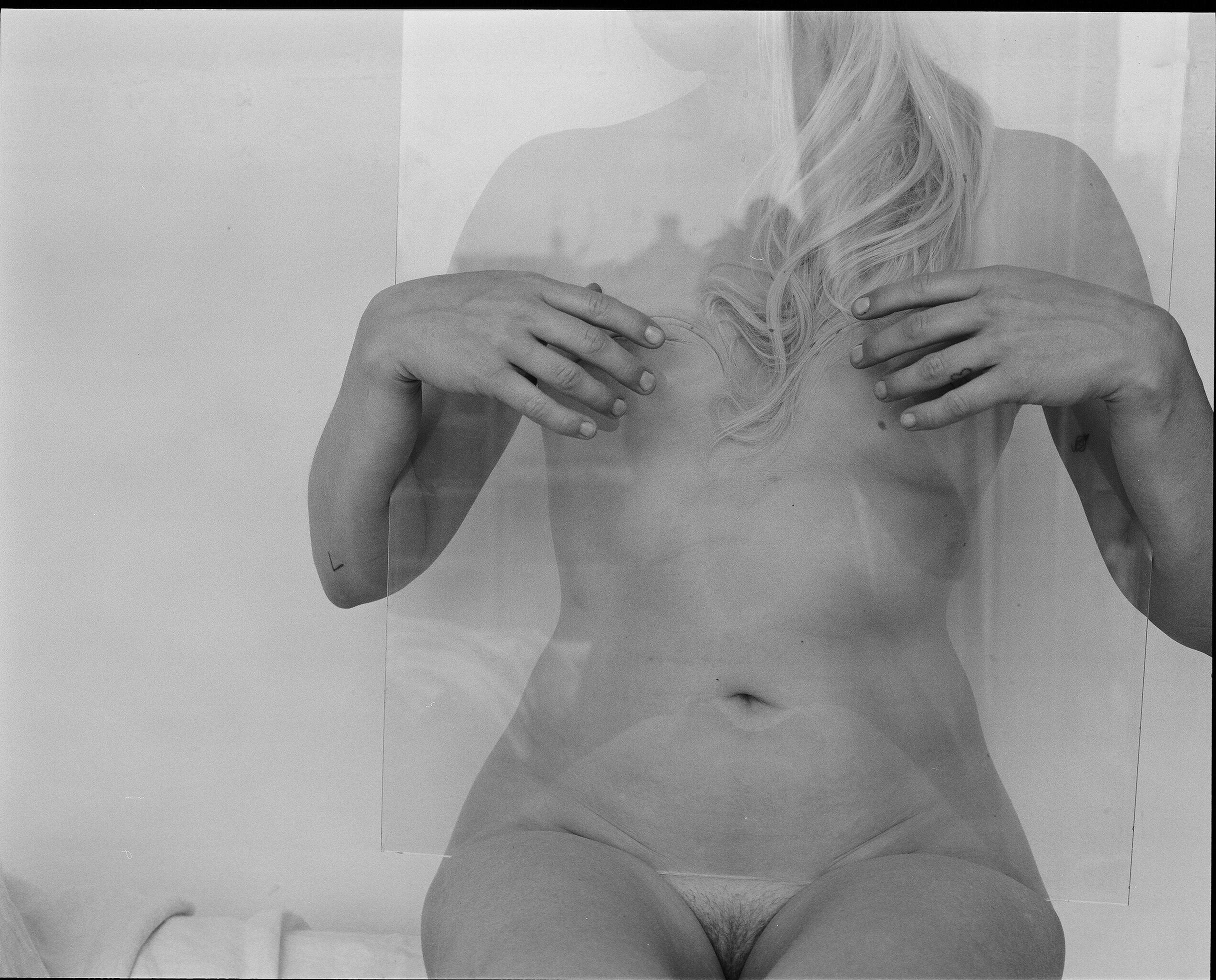
The reason why I do [what I do] is because I feel that we have so much [blocked] inside. It doesn’t let us live freely - sometimes you just don’t understand why you have [this block] and that [impedes] your life. It’s so unnecessary.
I have a lot of friends that I shoot [continuously], and I still see so many blocks that they don’t want to see, or admit [to]. They’re still there with their taboos, and they [try] to look beautiful - it’s not about beauty, it’s about opening up to see your fragility, to see your sensitivity, to see your courage and your fears. To see who you are, the good and the bad things! [In order to] see the truth, it’s important to have self-knowledge of who we really are.
I think having a multicultural upbringing gives you a very nuanced view of identity, and other people’s identities. Especially in the arts and photography, when you’re working with someone else so intimately, perhaps you’re more able to share that nuance with the other person. How else do you create a space for the person you're photographing to feel comfortable with opening themselves up to the camera in the way you want them to?
When I was sixteen, my dream was to be a singer or a dancer. The best thing that I know is movement, and dance, just opening to the music with body movement!
I think our movement helps us, it’s like a language. We don’t know how it works, but we talk with our body. That says so much, sometimes even more, because it comes naturally, we don’t think about it. With our words, we can think about it a little, we can control it. With your body, you don’t, because there are no rules! So for me, body movement, with music, is the most sensitive.
It happens sometimes that I [work with] somebody, and she wants to do the work, but she’s very very [tense]. That can happen, because sometimes I do this with women that I’ve never seen in my life. I tell them to forget about everything and let go. I always have music, to let go of things, you know? Depending on the person in front of me, I feel what she needs to do to open up. I think it has to do [with] energy. I don’t know how I can explain it in another way.
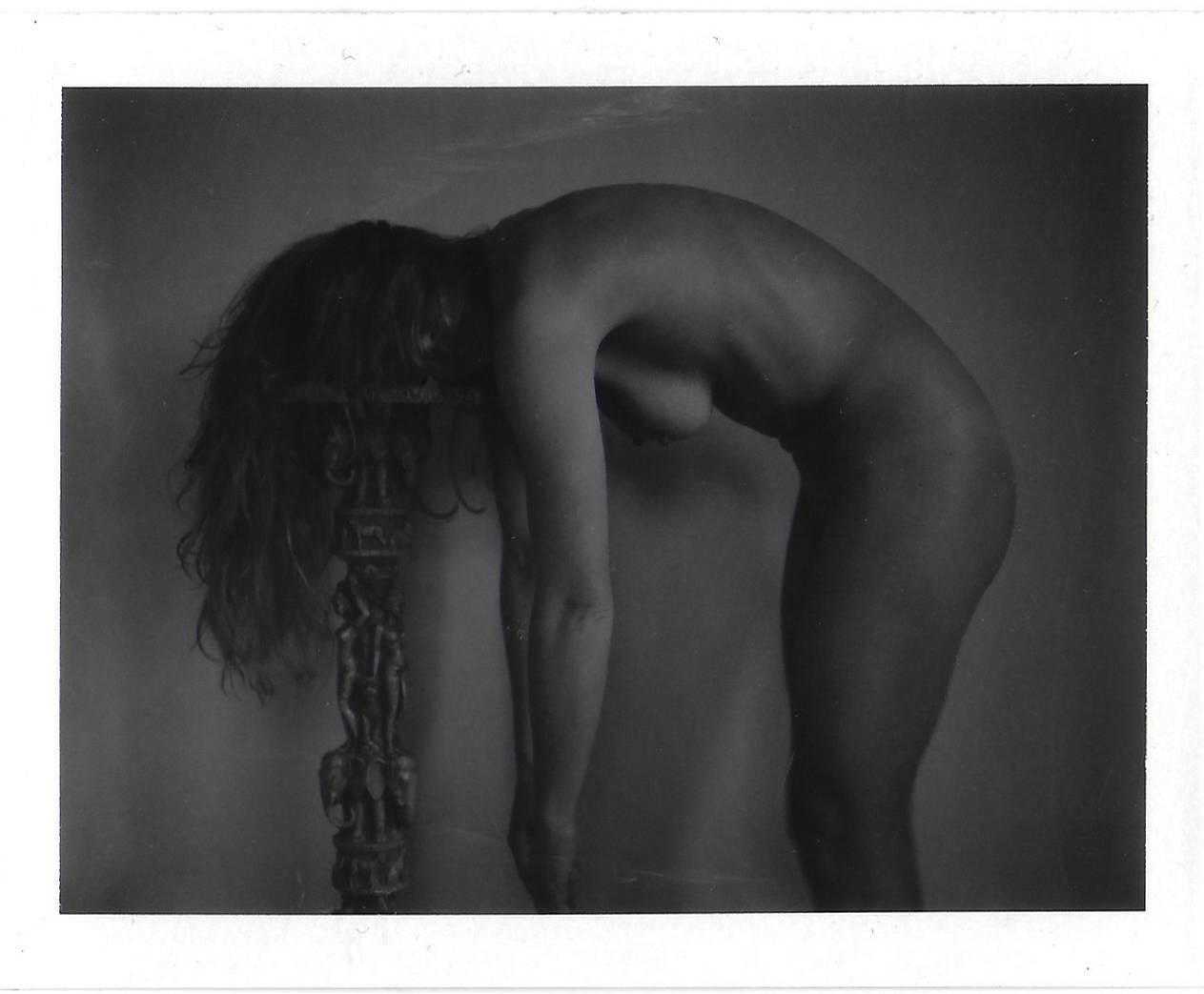
For me it’s [so satisfying] when I see, later on, the pictures - even when I’m working with them - how this person came before and I think, this is not the same person! It’s so beautiful! I feel like a therapist. I see it as a positive thing, I don’t see it as: “you have a problem, I’m going to solve it.” It’s not like that. I mean, imagine going out tonight to a concert with music that you love. Not everybody loves to dance, of course, but I think a lot of people like to dance, but don’t, because they’re insecure, they think they’re not good enough, or it’s not the right music. But I think ninety percent of people like to dance. Imagine doing that without having any judgement - just music you love, with people you love, in the right place and moment. That’s the feeling I want. Because when you come home from that evening, you’re relieved. You had a great time, you have a lot of energy, you feel happy! I mean, it sounds really basic, but for me it’s like a revelation.

That reminds me of how people say that the body holds what the mind isn’t ready to hold yet. There’s this balance between movement and stillness in your photos - they are so dynamic but at the same time there’s this peace. That gives the sense of the body releasing the thing that you’re not ready to confront.
Yeah, or verbalize. I went to a workshop years ago with a photographer who does really hard photography - subjects like prostitution, and drugs. There’s a lot of pain and real suffering, so the pictures are beautiful but not about beauty; they’re strong. I remember him saying to me about my photos, “they’re too beautiful, they’re too nice, it’s not interesting,” I think, for me, beauty doesn’t need to be superficial.
Beauty is like love. Love [to me] is the only thing that can really heal. Love is positive energy that we can do a lot with. [In] some of my pictures, you can see suffering, but I want to transform it into beauty anyway. I don’t think that if you’re happy and you have a good stable life, it’s not worth photographing. Photography is for everybody, it’s for everything. All women - in my case, because I don’t do men - have the right to be as they are.

So why did you embark on this personal work only with women? What is it for you that makes that important?
First of all, it’s a personal [work], and I’m a woman. I’ve done men, sometimes I do, but they have another way of seeing their interior world. They have more ego. For now, I think it’s easier for me to do women, because I know how they work, they are more giving, more open to me coming close to them.
I guess there’s also this immediate shared connection - you already have a foundation of trust to build from.
Yeah, exactly. Work, in the end, is personal. For example, on Monday I have a shoot with this woman, she’s 55. She has a disease and she wants to do this shoot because she doesn’t know what’s going to happen and she wants to give [the photographs] to her husband as a present. Nobody knows that. She just wants to do it for herself and for her husband. I feel what she’s going through, even though I’m not [really experiencing] her problem. It’s just [capturing] the sensitivity and the beauty of what she’s going through right now - it’s like, “let’s do something beautiful with this and bring [you] out!” It’s [infectious], our way of seeing the moment we are living in - this mirror.
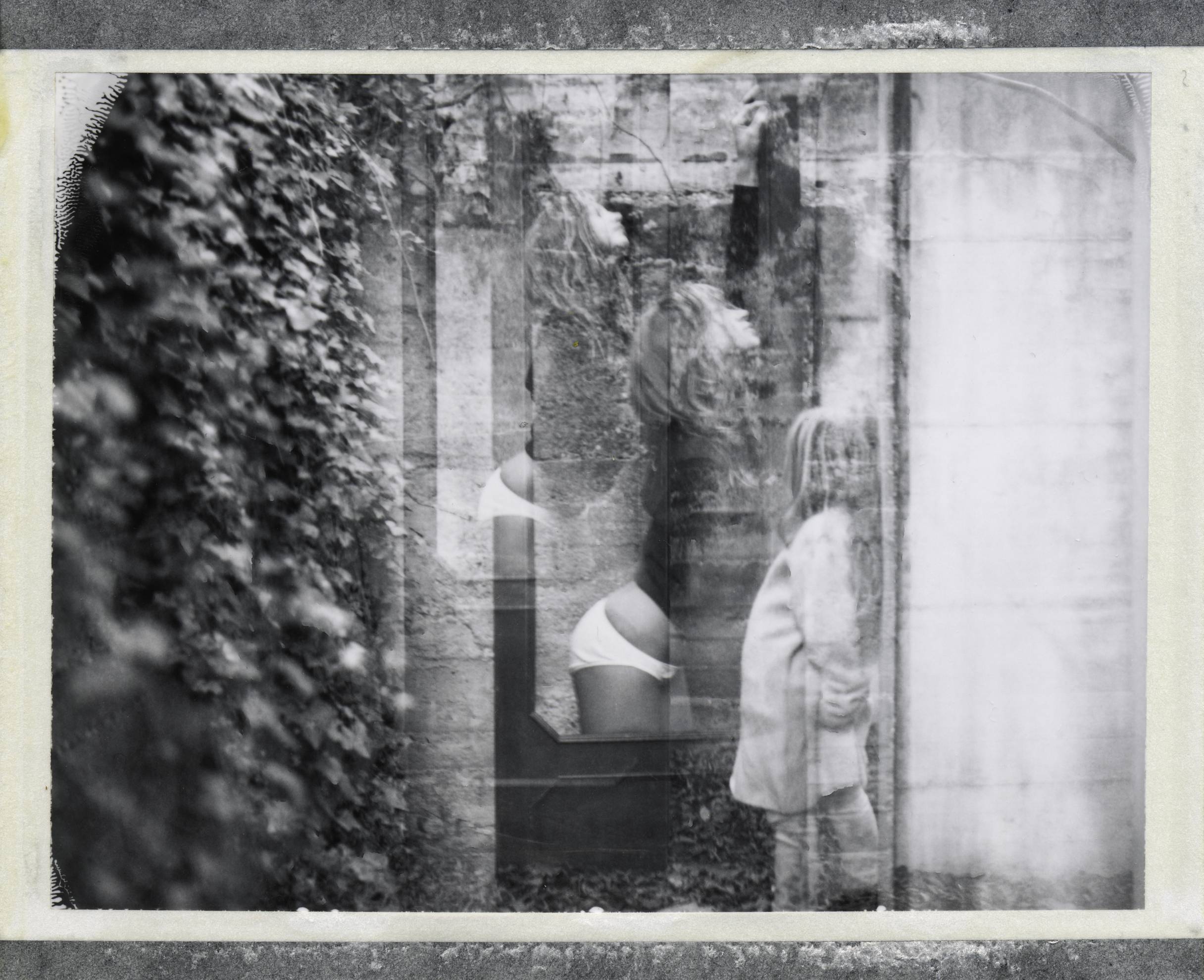
It’s this kind of collaboration of some shared female experience that feels very universal, despite the individuality of it all. Was it an intentional choice for you to use mainly black and white film?
This is another thing that people are telling me, that I should do more color. And it’s true - the moment I post color on Instagram, I have more people [interacting]. I do understand, because people like reality. For me, black and white is timeless. When it’s timeless, it means [there are] a lot of years and feelings [behind it], and that can scare people. If it’s color, it’s just like, this is here and now. It’s easier to understand. Black and white is more emotional… It brings back memories. Color is easier, it’s more dynamic.
What attracts you to instant photography in particular?
It’s very emotional - when you [peel it apart], for me it’s like… giving birth - it’s done! It’s such a strong emotion. The practice is not comfortable… but that’s what makes it special. It’s not practical, at least not for me, [I overthink]. When you do film, the movement [in the image] is [never] exactly how you want it, but you can feel something good. With Polaroids, either you have it or you don’t have it; there’s no inbetween. But the fact that you only have one, that’s special. You don’t have a file, you cannot redo it in the lab, you don’t have the negative. This is what it is.

When I first saw your photographs, I thought there was something very painterly about them. Do you get inspiration from other forms of art, aside from photography?
For me… photography, film, painting, poetry - even a phrase; if I listen to Patti Smith, for example, when she talks, it’s like I get this energy of needing to express something. She’s saying, “how can you be a musician and be singing for hours and not [communicate] something useful?” It’s so true! I can [spend] days listening to music, watching videos. I grew up in the 80s where you were at home watching MTV! That was of course not good music, but… it’s the fact of looking at something that somebody has done that inspires me to [do what I do]. I watch a lot of documentaries, small pieces on YouTube where I hear artists speak about their art.
I am very observant of other people, [even on the street]. It could be someone feeling sad, or a gesture between people, and that could change my mood - a mother hugging her kid… I’m very emotional. It’s everyday life that gives me feelings, and afterwards I have to express those feelings in some way, instead of keeping them inside. I think that’s what art is about.
I was explaining to my son - he’s going to be 22 soon - he’s a painter, and he’s doing well and selling his paintings. But he’s a very sensitive person, so he’s very fragile, he [suffers], you know? He’s very negative. And I explained to him that as artists we are fragile. Because we feel so much, and we have to be careful not to fall [over] the edge. We need limits. It’s the same as alcohol, drugs… when you drink, or you smoke a joint, you feel everything so much stronger. So I’m trying to explain to him that it’s a luxury that you have as an artist, you feel more. But we have to be careful.
I guess art is a way to protect yourself. It is a space to put your feelings.
Yeah, imagine feeling [so much] and not using art to express it! I mean, what do you do? I understand that everybody does something that they like - like, if you’re an economist, I’m sure you express your emotions through that… but, you know, I don’t know how much you can feel your feelings through that - you’d better have good friendships, a dog, a wife, I don’t know! I mean, I feel very lucky that I’ve found my instrument. But of course, it’s a difficult life. The art world is not fluid.
Just one last question! Would you like to share any projects that you have coming up that we could follow?
I’m going to be in Madrid from the 7th to the 10th of March at ARCO, it’s an art fair. They have other smaller fairs going on around the city, and I will be at URVANITY. It’s a small gallery called Lariot Collective who [I will be with]. I’m [also] doing this new thing, trying to get to Dubai and then New York. As soon as I have a new body of work in my portfolio, I really would like to go somewhere else.
We'd like to thank Sofía for sharing her work and insights with us! To view more of her work, check out her website and follow her on Instagram!
written by emiliee on 2024-03-25 #people #black-and-white #sweden #spain #women #healing #nude #polaroid #release #scandinavia #liberation #identity #female-form





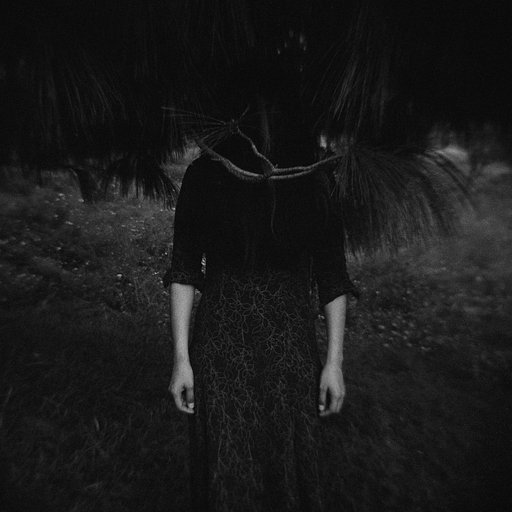


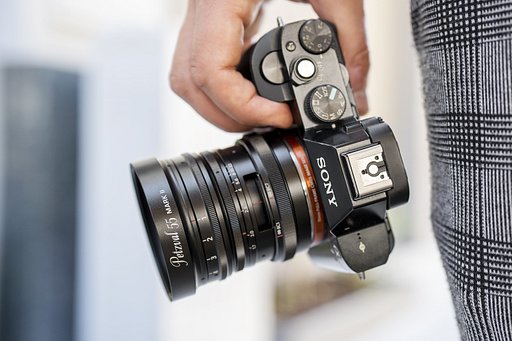









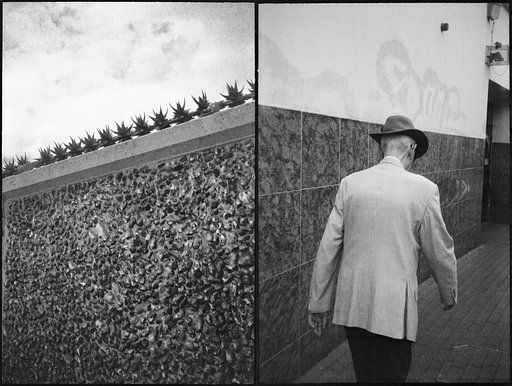
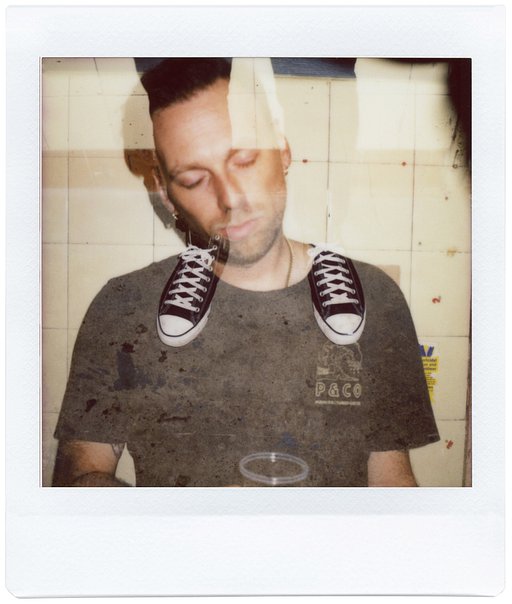
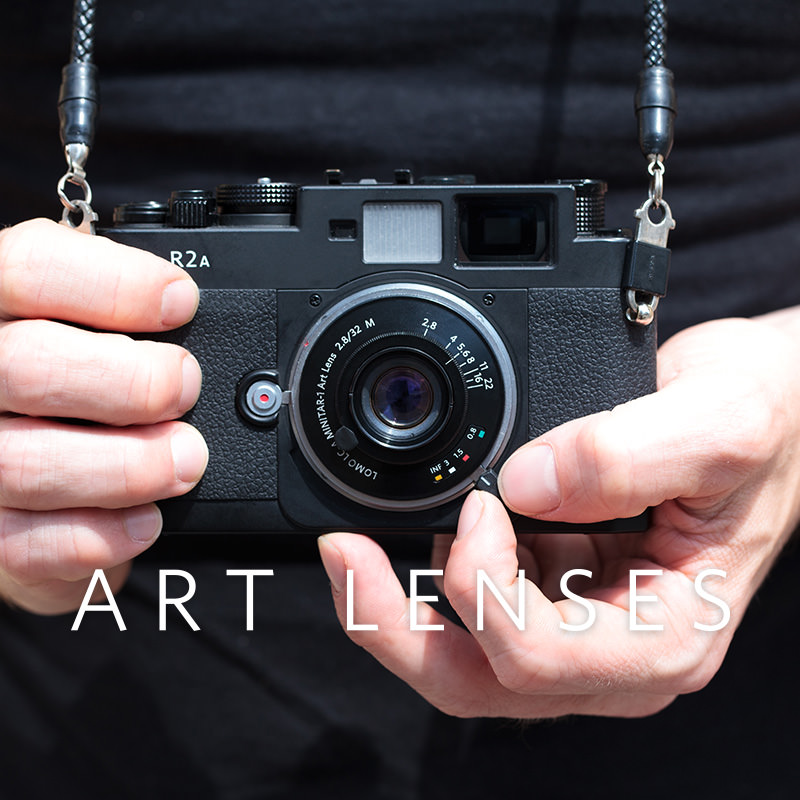
No Comments